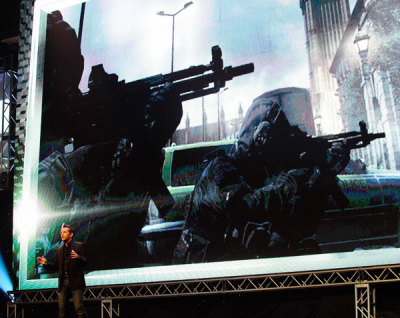The video game industry needs a Bud Light moment

Influencers and leaders of the video game industry are enthralled with the idea of using a market predominantly targeting minors to sway a whole generation into adopting and accepting LGBT+ ideology.
Major game studios have embraced Pride Month this year in a manner that gamers cannot escape. What this industry truly needs now more than ever is a Bud Light moment to correct course.
Bud Light faced a boycott last year after hiring far-left transgender activist Dylan Mulvaney as a spokesperson. Americans boycotted the brand for endorsing gender ideology, and sales are still foundering a year later. Sales of Bud Light fell 9.1% from January to March this year.
Another LGBT-pandering company, Target, lost billions of dollars in market value after Americans boycotted the brand for promoting the radical ideology last year.
The video game industry is going down the same path that Bud Light and Target did.
Take what the official X account for the Halo series posted on June 1, for example.
Halo is a game series, a so-called first person shooter, that has remained synonymous with Microsoft’s Xbox platform for over 20 years.
Rather than prioritize gamers having fun as in years past, the official Halo account posted to “embrace love, diversity, and inclusion by equipping the Unity ’24 armor coating, nameplate, and emblem in Halo Infinite this June.”
The developers added these features to the game for the purpose of “honoring our LGBTQIA+ community and forging a future of unity and acceptance for all.” Xbox’s studio that runs the Halo franchise, 343 Industries, knew exactly what it was doing when it implemented Pride Month memorabilia to a game with a significant impact on youth.
This should come as no surprise considering Xbox’s official account posted on May 31 that it would be working with The Trevor Project, a transgender activist organization.
Another major game series that has fully embraced promoting LGBTQ+ ideology to children is Call of Duty.
To celebrate Pride Month, the gaming corporation Activision Blizzard added LGBTQ-themed paint coatings for guns in Call of Duty: Modern Warfare 3 and Call of Duty: Warzone.
The transgender paint coating for the games notably also painted the transgender flag over the bullets of one gun used to kill other players.
The transgender bullets are reportedly a bug in the game. This seems to be a major oversight, with transgender students recently creating hit lists in schools.
The largest gaming corporation targeting children is unfortunately following suit.
In May, Nintendo released a remake of the popular 2004 game Paper Mario: The Thousand-Year Door. The game is selling well, and considering this is a Mario game, the audience is predominantly children.
In the original release of Paper Mario in 2004, one of Mario’s sidekicks is a prominent character named Vivian. The character in the original Japanese release was described as an “otokonoko,” which is a feminine boy. To avoid controversy, the American release completely changed the character to female 20 years ago.
Rather than stick to either the original Japanese or American interpretations, Nintendo of America has changed Vivian’s dialogue to make the character explicitly transgender in the remake, in a game primarily intended for children.
Vivian was not transgender in either of the original Japanese or American interpretations.
This change is in line with the company’s new hiring practices, which now reportedly require potential employees to have awareness of “DE&I related topics.”
Nintendo of America’s website additionally promotes “Diversity & Inclusion” with Mario front and center. The company appears to have segregated affinity groups, with one labeled as “rainbow.” The goal of this group is “fostering an accepting and open environment to welcome new LGBTQ+ family members into the greater Nintendo family.”
Most of the largest corporations in the video game industry appear to be more than willing to use their platform and influence to ensure the next generation of children embrace an extremist LGBT+ ideology that would have been unthinkable just a few years ago.
So it’s time for the video game industry’s Bud Light moment.
The goal of activist leaders in the industry is to use their power to influence children. Whether it is Xbox or Nintendo, parents and gamers alike need to speak with their wallets.
Just as Bud Light and Target reversed course, game corporations would do the same if it meant losing profits. We simply cannot allow them to target children anymore. This time next year, let’s hope we are referring back to the video game industry’s “Mario moment.”
Originally published at The Daily Signal.
Casey Ryan is a writer and investigative reporter at Parents Defending Education.




















